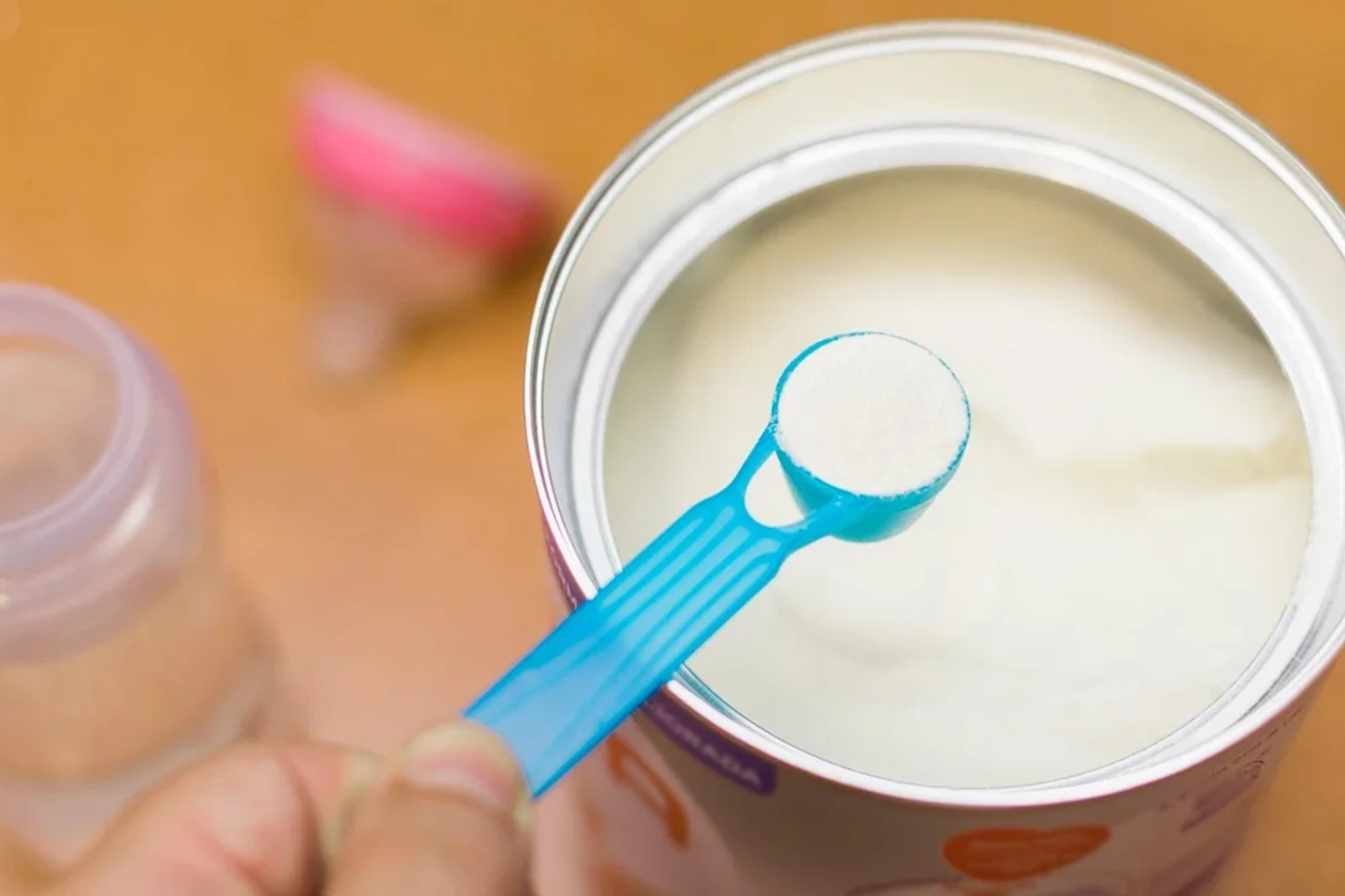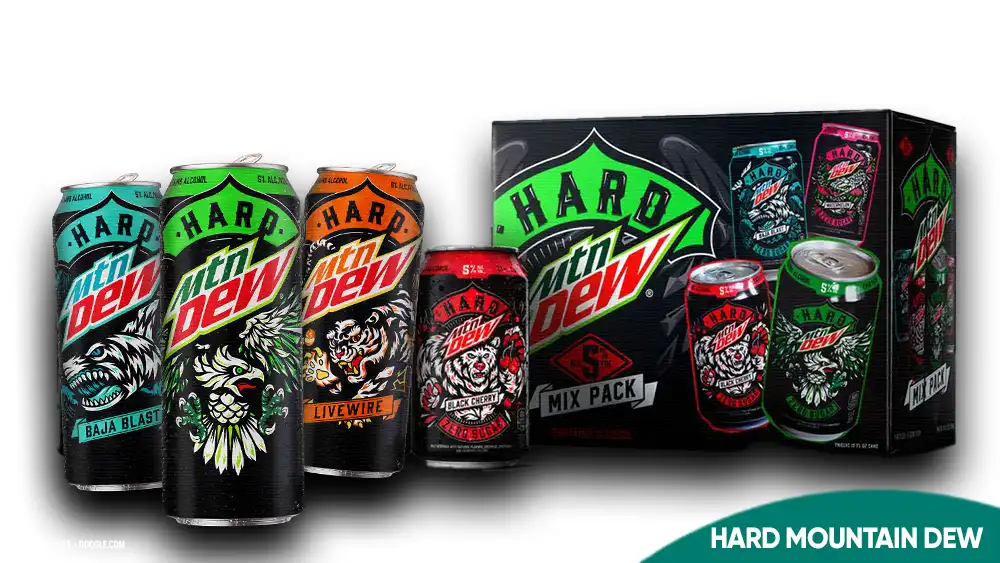
HEALTH BLOG
Hard Mountain Dew: Taste, Health, and Availability
-
Rahul Priydarss
Discover Hard Mountain Dew, the innovative alcoholic beverage that blends the iconic citrus flavor of Mountain Dew with a 5% alcohol kick. Launched in 2022 by PepsiCo and Boston Beer Company, Hard Mountain Dew offers a refreshing take on classic soda with flavors like Black Cherry and Watermelon. Perfect for fans of the original drink seeking a new adult twist, this beverage also includes caffeine, adding an energizing boost. Explore its origins, health considerations, and where to buy, as well as how it compares to other hard drinks. Find out why Hard Mountain Dew is making waves in the hard seltzer market!
Introduction to Hard Mountain Dew:
Hard Mountain Dew is a recent addition to the world of alcoholic beverages, blending the beloved taste of Mountain Dew with a kick of alcohol. Launched by PepsiCo in collaboration with Boston Beer Company, this drink caters to fans of the original citrus soda who are looking for a more adult-oriented option. Introduced in 2022, Hard Mountain Dew marks PepsiCo’s first foray into the hard seltzer market, aiming to capture a slice of the rapidly growing sector.
The beverage features a 5% alcohol by volume (ABV), positioning it as a moderate option within the hard seltzer category. It is available in several flavors, including the classic Mountain Dew flavor, Black Cherry, and Watermelon, which offer a familiar yet novel experience for those seeking a combination of nostalgia and innovation. Hard Mountain Dew’s launch reflects a broader trend of major beverage brands diversifying their product lines to meet evolving consumer preferences.
What is Hard Mountain Dew?:
Hard Mountain Dew is an alcoholic beverage that combines the popular citrus flavor of Mountain Dew with alcohol. Developed through a partnership between PepsiCo and Boston Beer Company, it was first introduced in 2022. This drink brings a new twist to the classic Mountain Dew experience, catering to adults who enjoy the iconic soda but are looking for a drink with an alcoholic kick. Hard Mountain Dew marks PepsiCo’s entry into the hard seltzer market, reflecting a growing trend among beverage companies to expand their product portfolios to include alcoholic options.

Table of Contents
Origin and History of Mountain Dew:
Mountain Dew, a popular citrus-flavored soft drink, has a unique origin story from the 1940s. Originally created by Barney and Ally Hartman, two beverage bottlers from Tennessee, Mountain Dew was conceived as a mixer for whiskey. The name “Mountain Dew” itself is a slang term for homemade moonshine, reflecting the drink’s original intent.
The initial formula was a mix of lemon and lime flavors, and the Hartmans’ version was marketed locally. However, it was not until 1961 that the Mountain Dew we know today began to take shape. That year, the rights to the Mountain Dew name and formula were purchased by the Tip Corporation, which reworked the recipe to create a more commercially viable product.
In 1964, the revamped Mountain Dew was officially introduced to the market. The drink quickly gained popularity due to its unique, bold citrus flavor and high caffeine content, distinguishing it from other sodas. PepsiCo acquired Mountain Dew in 1964, and under its ownership, the brand saw significant growth and expansion.
Throughout the years, Mountain Dew has introduced a variety of flavors and limited editions, solidifying its place as a leading beverage in the citrus soda category. Its iconic branding and innovative marketing strategies have helped it remain a favorite among consumers.
What is PepsiCo:
PepsiCo is a global food and beverage company headquartered in Purchase, New York. Founded in 1965 through the merger of Pepsi-Cola and Frito-Lay, PepsiCo has grown into one of the world’s largest and most diverse food and beverage companies. The company’s product portfolio includes popular brands such as Pepsi, Mountain Dew, Tropicana, Gatorade, Quaker Oats, and Lay’s. This extensive range of products allows PepsiCo to cater to a wide array of consumer preferences, from snacks and beverages to nutrition products.
PepsiCo’s success is driven by its commitment to innovation and sustainability. The company invests heavily in research and development to create and improve new products. Additionally, PepsiCo has implemented various sustainability initiatives to reduce its environmental impact. These efforts include reducing water usage, lowering greenhouse gas emissions, and increasing the use of recyclable materials in packaging. PepsiCo aims to balance its growth with responsibility towards environmental and social issues.
The company’s global reach and diverse product range give it a significant presence in numerous global markets. PepsiCo operates in more than 200 countries and territories, allowing it to serve a broad and varied customer base. This extensive network supports the company’s ability to respond to local market trends and consumer demands, contributing to its continued success and growth in the competitive food and beverage industry.
The Concept Behind Hard Mountain Dew:
The concept behind Hard Mountain Dew is to merge the beloved citrus flavor of the original Mountain Dew with the excitement of an alcoholic beverage. Developed through a partnership between PepsiCo and Boston Beer Company, Hard Mountain Dew is part of a broader trend of major beverage brands expanding into the alcohol market.
The idea behind Hard Mountain Dew is to appeal to consumers who enjoy the classic, refreshing taste of Mountain Dew but are looking for an alcoholic option. It reflects a growing demand for innovative, flavored alcoholic drinks, particularly among younger audiences who seek novelty and brand familiarity in their choices. By maintaining the familiar taste profile of Mountain Dew and adding an alcoholic twist, the brand aims to capture both loyal soda fans and new consumers interested in hard seltzers and ready-to-drink cocktails.
Hard Mountain Dew Ingredients:
Hard Mountain Dew is crafted with a blend of ingredients that combines the classic citrus flavor of Mountain Dew with the addition of alcohol. The primary ingredients typically include.
- Carbonated Water: Provides the effervescence and refreshing quality of the drink.
- High Fructose Corn Syrup (HFCS): A sweetener that contributes to the beverage’s sweetness.
- Natural Flavors: These replicate the signature citrus taste of Mountain Dew. For Hard Mountain Dew, this includes flavors similar to the original Mountain Dew, such as citrus and sometimes additional fruit notes.
- Alcohol: The beverage contains 5% alcohol by volume (ABV), usually derived from fermented sugars. This gives Hard Mountain Dew its alcoholic content.
- Citric Acid: Adds tartness and enhances the citrus flavor.
- Preservatives: Ingredients like sodium benzoate may be included to maintain freshness and extend shelf life.
- Caffeine: Hard Mountain Dew retains the caffeine found in the original Mountain Dew, contributing to its energizing qualities.
Here’s a table summarizing the typical ingredients of Hard Mountain Dew along with their approximate quantities:
| Ingredient | Quantity (per 12 oz can) |
|---|---|
| Carbonated Water | 12 oz |
| High Fructose Corn Syrup (HFCS) | 12-14 grams |
| Natural Flavors | Varies (proprietary blend) |
| Alcohol (derived from fermented sugars) | 5% ABV (approximately 0.6 oz) |
| Citric Acid | Varies (used for tartness) |
| Preservatives (e.g., Sodium Benzoate) | Varies (trace amounts) |
| Caffeine | About 46 milligrams |
– Please note that the exact quantities of some ingredients, like natural flavors and preservatives, may not be specified in detail due to proprietary formulations and regulatory requirements.

Does Hard Mountain Dew Have Caffeine:
Yes, Hard Mountain Dew does contain caffeine. Each can of Hard Mountain Dew typically includes about 46 milligrams of caffeine, which is similar to the amount found in a regular Mountain Dew soda. The presence of caffeine adds to the beverage’s energizing qualities, providing a familiar boost for fans of the original Mountain Dew who enjoy their drink with an alcoholic kick.
Does Hard Mountain Dew Have Alcohol:
Yes, Hard Mountain Dew contains alcohol. Each can have an alcohol by volume (ABV) of 5%, which is equivalent to the alcohol content found in many standard beers and hard seltzers. The alcohol is derived from fermented sugars, giving Hard Mountain Dew its alcoholic properties while maintaining the familiar citrus flavor of the original Mountain Dew soda.
How Much Sugar is in a Mt Dew:
A 12-ounce can of Mountain Dew contains about 46 grams of sugar. This amount is equivalent to approximately 11.5 teaspoons of sugar. Mountain Dew is known for its high sugar content, which contributes to its sweet, citrusy flavor. It’s important to be mindful of sugar intake, as consuming high amounts regularly can have health implications.
Flavors and Varieties of Hard Mountain Dew:
Hard Mountain Dew is designed to offer a variety of flavors that echo the classic taste of the original Mountain Dew while introducing a new alcoholic twist. The main flavors and varieties of Hard Mountain Dew include:
- Mountain Dew: This flavor mirrors the original Mountain Dew soda, with its signature citrus taste that blends lemon and lime for a refreshing experience.
- Livewire: A bold and fruity option, Black Cherry Hard Mountain Dew combines the familiar citrus base with a rich, dark cherry flavor, adding a sweet and tangy twist.
- Baja Blast: This variety offers a juicy, refreshing watermelon flavor, complemented by the citrus undertones of the original Mountain Dew, creating a summery and vibrant taste.
Baja Blast Mountain Dew Bad Aftertaste:
If you find that Baja Blast Mountain Dew leaves a bad aftertaste, there could be a few reasons behind this. Some people might experience an unpleasant aftertaste due to the specific blend of artificial flavors and sweeteners used in the drink. The unique tropical flavor profile of Baja Blast, which is a mix of pineapple and lime, might not appeal to everyone and can leave a lingering taste that some find off-putting.
Another factor could be the acidity of the soda. High acidity levels can sometimes contribute to an aftertaste or an uncomfortable sensation in the mouth. Additionally, if the drink is consumed in large quantities or on an empty stomach, it might intensify the aftertaste experience.
If you’re looking to avoid or minimize the aftertaste, you might consider drinking Baja Blast with food to balance out the flavors or opting for a different beverage that suits your taste preferences better.
Mountain Dew Hard Seltzer:
Mountain Dew Hard Seltzer combines the classic citrus flavor of Mountain Dew with the refreshing qualities of a hard seltzer. It typically contains around 5% alcohol by volume (ABV) and includes a moderate amount of sugar, similar to other hard seltzers, though specific sugar content can vary based on the brand and flavor.
Mountain Dew Hard Seltzer is part of a growing trend where popular beverage brands enter the hard seltzer market, aiming to attract consumers looking for a familiar taste with an alcoholic twist. It offers a lighter, lower-calorie option compared to traditional sugary cocktails.
Is Mountain Dew a Pepsi Product:
Yes, Mountain Dew is a PepsiCo product. It was originally created by Barney and Ally Hartman, and it was acquired by the Tip Corporation in 1964, which was later purchased by PepsiCo. Today, Mountain Dew is one of PepsiCo’s flagship soft drink brands, known for its citrus flavor and high caffeine content.
Health Considerations of Hard Mountain Dew:
When consuming Hard Mountain Dew, there are several health considerations to keep in mind.
Alcohol Content: With a 5% ABV, Hard Mountain Dew contains alcohol, which can affect coordination, judgment, and overall health if consumed in excess. Regular, moderate consumption is generally considered safe for most adults, but it is important to drink responsibly and be mindful of alcohol-related health risks.
Calories and Sugars: A typical 12-ounce can of Hard Mountain Dew contains around 150-160 calories and 12-14 grams of sugar. Regular consumption of sugary alcoholic beverages can contribute to weight gain, increased risk of diabetes, and other metabolic issues.
Caffeine: Each can contain approximately 46 milligrams of caffeine, which is similar to the caffeine content of a regular Mountain Dew soda. While moderate caffeine consumption is usually safe for most people, excessive caffeine intake can lead to jitteriness, insomnia, or heart palpitations.
Hydration: Alcohol is a diuretic, which can lead to dehydration. It’s important to stay hydrated by drinking water alongside alcoholic beverages.
Interactions with Medications: Alcohol can interact with various medications, potentially reducing their effectiveness or causing adverse effects. If you are on medication, consult with your healthcare provider about alcohol consumption.
Consumer Reviews and Reactions for Hard Mountain Dew:
Consumer reviews and reactions to Hard Mountain Dew have been largely mixed to positive. Many consumers have appreciated the drink’s ability to retain the familiar citrus flavor of the original Mountain Dew, which appeals to fans of the classic soda looking for an alcoholic twist. The refreshing taste, enhanced by the carbonation and citrus notes, is often highlighted, making it a popular choice for social occasions and warmer weather. The variety of flavors, including Black Cherry and Watermelon, has also been well-received, offering consumers options beyond the traditional taste.
However, some reviewers have expressed concerns about the drink’s sweetness and high sugar content, noting that it may be too sugary for those who prefer less sweet alcoholic beverages. Additionally, a few consumers have pointed out that the price of Hard Mountain Dew can be higher compared to similar products, which might be a consideration for those on a budget. There is also some apprehension about the caffeine content, as combining caffeine with alcohol could potentially mask the effects of alcohol and lead to overconsumption. Despite these concerns, Hard Mountain Dew has generally been welcomed for its innovative approach and familiar flavor profile.
Where to Buy Hard Mountain Dew:
Hard Mountain Dew can be purchased at a variety of locations, making it accessible to consumers looking to try this new alcoholic beverage. You can find it at major grocery stores, where it is often stocked in the beer and alcoholic beverage section. Retailers such as Walmart, Kroger, and Safeway typically carry Hard Mountain Dew.
Additionally, it is available at liquor stores and specialty beverage shops. These locations usually have a selection of alcoholic beverages, including Hard Mountain Dew, in various flavors. Convenience stores and some gas stations may also stock Hard Mountain Dew, especially those with a broad selection of alcoholic beverages.
For those who prefer online shopping, Hard Mountain Dew can be ordered from major e-commerce platforms and delivery services, such as Amazon or Drizly, which offer alcohol delivery options depending on local regulations. Checking the availability at specific retailers or online platforms is recommended to ensure you can purchase it at a location convenient for you.
Hard Mountain Dew Compared with Other Hard Beverages:
Hard Mountain Dew stands out in the alcoholic beverage market due to its unique combination of citrus flavor and alcohol. When compared to other hard beverages, several key differences and similarities become apparent:
Flavor Profile: Hard Mountain Dew offers a distinct citrus taste that mirrors the original Mountain Dew soda, with additional flavors like Black Cherry and Watermelon. In contrast, other hard beverages such as hard seltzers and flavored malt beverages often feature fruit flavors like lemon, lime, or berry, but may not provide the same bold citrus experience. Hard Mountain Dew’s flavor profile sets it apart by maintaining a familiar soda-like taste with an alcoholic twist.
Alcohol Content: With a 5% ABV, Hard Mountain Dew is comparable to many standard hard seltzers and light beers, which typically range from 4-6% ABV. This makes it a moderate choice in terms of alcohol content. Some other hard beverages, like stronger craft beers or spirits-based drinks, can have significantly higher ABV, offering a different drinking experience.
Sugar and Caloric Content: Hard Mountain Dew contains approximately 12-14 grams of sugar and 150-160 calories per 12-ounce can. This is similar to the sugar and calorie content found in many flavored malt beverages but higher than that in most hard seltzers, which are often marketed as lower-calorie and lower-sugar alternatives. The sweetness and caloric content of Hard Mountain Dew may appeal to those who enjoy a sweeter, more soda-like alcoholic drink.
Caffeine Content: Each can of Hard Mountain Dew includes about 46 milligrams of caffeine, adding an energizing element not commonly found in other hard beverages. While some hard seltzers and flavored malt drinks do not contain caffeine, this aspect of Hard Mountain Dew might attract consumers who appreciate the added stimulant.
Market Position: Hard Mountain Dew represents a blend of traditional soda flavors with the convenience of an alcoholic beverage, positioning itself uniquely in the market. It caters to consumers looking for a familiar taste with the added appeal of alcohol, distinguishing it from more straightforward hard seltzers or craft beers that may emphasize different flavor profiles or brewing techniques.
FAQs about Hard Mountain Dew:
A1: Yes, Hard Mountain Dew comes in several flavors, including the original, Black Cherry, and Watermelon.
A2: Hard Mountain Dew has an alcohol content of 5% ABV.
A3: Hard Mountain Dew is available in grocery stores, liquor stores, and online retailers.
A4: Hard Mountain Dew offers a more robust citrus flavor compared to the often more neutral taste of hard seltzers.
A5: You can enjoy Hard Mountain Dew straight from the can or use it as a mixer in various cocktails.

-Please remember, to always consult with healthcare professionals or Doctors for personalised advice related to medical conditions.
Conclusion:
In conclusion, Hard Mountain Dew represents a fresh twist on a beloved classic, merging the distinctive citrus flavor of Mountain Dew with a 5% alcohol content. Since its launch in 2022, this innovative beverage has intrigued fans with its blend of nostalgia and novelty. Its availability in flavors like Black Cherry and Watermelon provides exciting options for those seeking a refreshing, alcoholic alternative to traditional sodas. While it maintains familiar elements, such as caffeine, it also raises health considerations due to its sugar content and potential alcohol effects. Hard Mountain Dew’s unique position in the market highlights the growing trend of beverage brands diversifying into alcoholic products.




